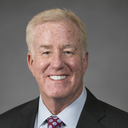Amendments to New York Nonprofit Revitalization Act of 2013 are now in effect
By Michael McNee | John D'Amico | July 6, 2017On November 28, 2016, additional amendments (the “2016 Amendment”) to the New York Nonprofit Revitalization Act of 2013 (the “NPRA”) were signed into the New York Not-for-Profit Corporation Law (“NPCL”). The 2016 Amendment is intended to “improve and make clarifying amendments” in order to “correct certain inconsistencies, and make the statute operate more smoothly and efficiently.”
The 2016 Amendment became effective on May 27, 2017 – except for the provision related to the chair of the board, which became in effect on January 1, 2017.
Below, we’ve summarized the most significant changes to the NPRA rendered by the now effective date of the 2016 Amendment.
Related Party Transaction Provision
The NPRA prohibited nonprofits incorporated under the NPCL to enter into a related party transaction unless it was determined by the board, or an authorized committee thereof, to be fair, reasonable and in the nonprofit’s best interest. The 2016 Amendment redefines a related party transaction to exclude (a) de minimis transactions; (b) transactions that would not customarily be reviewed by the board or by boards of similar organizations and are available to others on the same or similar terms; and (c) transactions that constitute a benefit to a related party only as a member of a class of the beneficiaries that the nonprofit intends to benefit as part of its mission. Additionally, the 2016 Amendment permits the board to authorize a committee to approve a related party transaction.
Key Person
The 2016 Amendment redefines who qualifies as a related party and replaces the term “key employee” with “key person.” The new term now expressly includes individuals other than employees. The 2016 Amendment defines a “key person” as an individual (other than officers or directors, who are otherwise defined as a “related party”), “who (i) has responsibilities, or exercises powers or influence over the nonprofit as a whole similar to the responsibilities, powers, or influence of directors and officers; (ii) manages the nonprofit, or a segment of the nonprofit that represents a substantial portion of the activities, assets, income or expenses of the nonprofit; or (iii) alone or with others controls or determines a substantial portion of the nonprofit’s capital expenditures or operating budget.
Independent Director
The NPRA requires that certain functions be carried out by a board or audit committee comprised solely of “independent directors,” including oversight of the nonprofit’s accounting and financial reporting processes.
The 2016 Amendment revised the definition of “independent director” to provide a sliding scale triggering disqualification in certain limited situations. In the case of entities that receive payments from, or make payments to, a nonprofit subject to the NPCL, a director may still be independent even if he/she is employed by, or has a financial interest in, the other entity if the amount paid or received during each of the past three fiscal years is less than $10,000 or 2% of the entity’s consolidated gross revenues and the amount of such gross revenues is less than $500,000. For entities with consolidated gross revenues between $500,000 and $10,000,000, the amount of the payments to the entity or from the entity to the corporation subject to the NPCL may not exceed $25,000 (without reference to a percentage of the entity’s gross revenues). Finally, in the case of entities with consolidated gross revenues of $10,000,000 or more, the amount of the payments to the entity or from such entity to the nonprofit subject to the NPCL may not exceed $100,000 (without reference to a percentage of the entity’s gross revenues). Further, “compensation” does not include reimbursement for expenses reasonably incurred as a director or compensation for service as a director permitted by NPCL § 202(a)(12).
The 2016 Amendment further amends the independent director standard by removing payments made to a nonprofit at fixed or non-negotiable rates or amounts for services received as long as such services are available to the public on the same terms and the services are not available from another source (such as those to utility companies).
Chair of the Board
The NPRA prohibited an employee of a nonprofit organized under the NPCL from serving as chair of the board. The 2016 Amendment now allows employees to serve as chair or hold a title with similar responsibilities, provided that the board approves the election by a two-thirds vote of the entire board and documents the basis for approval.
Conflict of Interest and Whistleblower Provisions
The 2016 Amendment revises the conflict of interest and whistleblower policy provisions by prohibiting an employee who concurrently serves as a director from taking part in any board or committee deliberations concerning the administration of whistleblower policies. Additionally, any person subject to a whistleblower complaint may not be present at, or participate in, board or committee deliberations or voting on the matter relating to the complaint.
Committee Formation and Operational Provisions
The 2016 Amendment makes numerous revisions regarding the formation and power of committees. Under the NPRA, a majority vote of the entire board was needed to create a committee. The 2016 Amendment provides that a majority of the directors present at a board meeting at which a quorum is present can create a committee (other than the executive committee). For the executive committee, a majority vote of the board is still needed. The only exception is a board with 30 or more members, in which case a vote of at least three-quarters of those present will be sufficient if there is a quorum of the board present.
The 2016 Amendment also adds to the list of powers that may not be delegated to committees. These non-delegable powers include the authorities to elect or remove officers and directors; to approve a merger or plan of dissolution; and to adopt a resolution recommending a sale of all or substantially all of the nonprofit’s assets.
Conclusion
The amendments do not specifically require that nonprofits amend their governing documents. However, we strongly believe that nonprofits subject to the NPCL should review their governing documents, including their by-laws, and make any necessary revisions.
For More Information
If you have questions about this alert, please contact Michael McNee, CPA, Co-Partner-in-Charge of our Nonprofit, Government & Healthcare Group; John D’Amico, CPA, Director with our Professional Standards Group; or any of our nonprofit professionals.
In addition, you can download our amended checklist for compliance with the New York Nonprofit Revitalization Act. The checklist is used by the New York State Office of the Attorney General, and we hope it serves as an equally useful resource to you.
About Michael McNee
Michael McNee, CPA, is the Partner-in-Charge of Attest Services at Marks Paneth LLP. He is also a member of the firm’s Executive and Management Committees. In these roles, Mr. McNee is responsible for overseeing the execution of the firm’s audit and attest services and directing the operations of the Nonprofit, Government & Healthcare Group. He develops strategy, sets policy and acquires and develops talent. In addition to his managerial duties, Mr. McNee maintains client responsibilities and... READ MORE +
About John D'Amico
John D'Amico, CPA, is a Partner within the Professional Standards Group at Marks Paneth LLP, which is responsible for monitoring quality control in the firm as mandated by professional standards. He specializes in pre-issuance reviews and inspections of nonprofit organizations, governments and Single Audits. Mr. D’Amico also provides consultation on accounting and attestation matters and tests and monitors the firm's quality review policies and procedures. He teaches continuing education classes for the firm and on... READ MORE +





